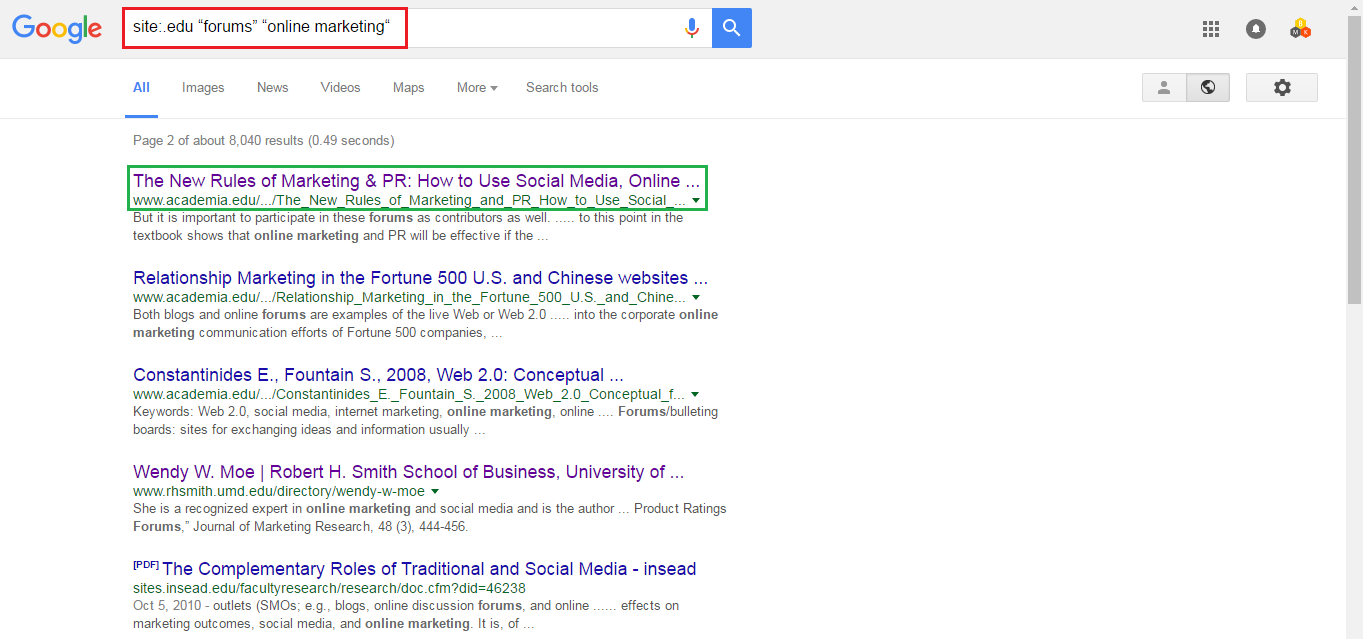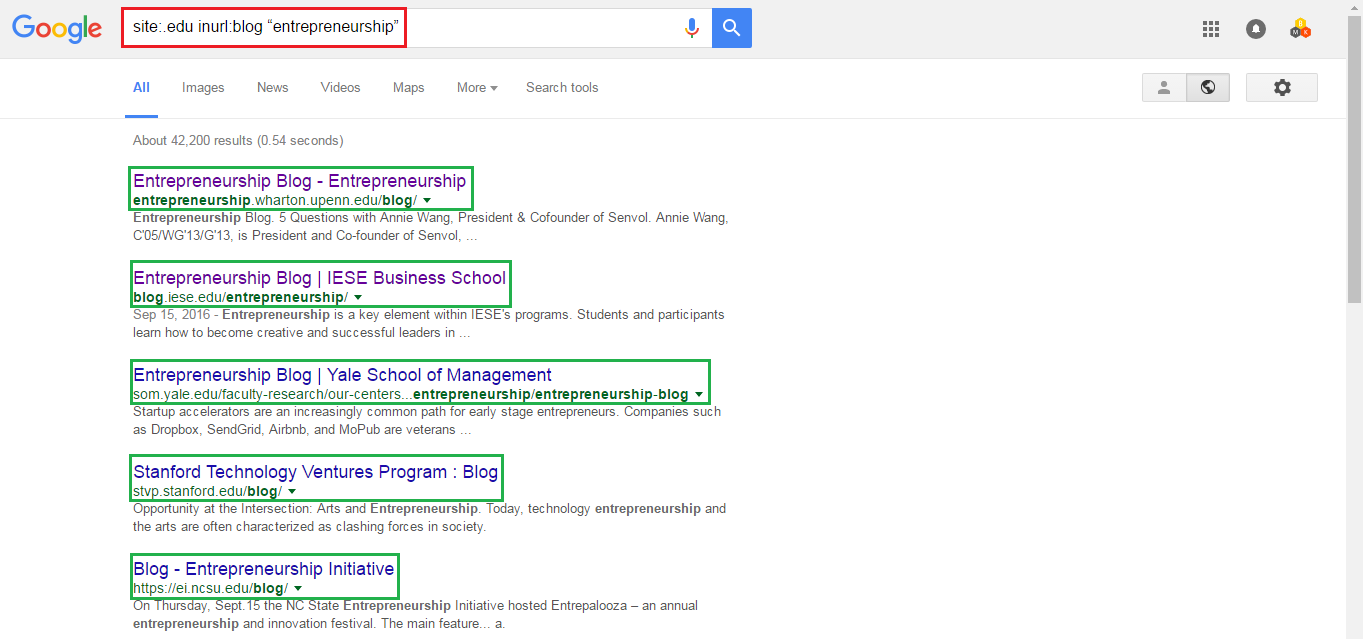Advanced search techniques for SEO link building strategy
SEOCONTENT MARKETING
Advanced search techniques are a golden mine for any website SEO link-building strategy. By learning how to use these Google search formulas, you as a digital marketer or entrepreneur can drive quality traffic to your site, win leads and sales, find online partnerships for your start-up, and much more...
In this article, you'll learn how to find exactly the types of websites/blogs you are looking for. These can be blogs that approach specific topics (online marketing, SEO, or entrepreneurship). Or forums focused on issues that your company can solve.
1. Why advanced search techniques are useful for off-page/off-site SEO strategy?
To find adequate places from where you can get a link to your site, use Google search operators because they can make an impact on your SEO strategy and, implicitly, on your online marketing strategy. All you need to do is to be creative when applying the following advanced search formulas. Try different combinations until you find suitable websites for collaboration.
Therefore, these formulas can represent the key to your link-building and outreach marketing strategies. If used correctly, they can help you promote your products, increase brand awareness, reach people who are eager to interact with your content, product or start-up.
For instance, your website or blog can provide marketing services, content about how to generate leads, or how to become an entrepreneur.
"And to make users aware of your site’s presence and value, it must be brought into discussion exactly where it is needed in articles/comments/reviews/forums and sites related to your topic."
2. What's important to know about .edu domain extension or top-level domain (TLD)?
Educational sites (.edu) have high authority because they are appreciated by search engines and are truly credible to users.
They are this way because of the domain name extension .edu which is a top-level domain used by institutions of higher education in the USA. But also because of the relevant and valuable content they are making available.
If you collaborate with universities that have the extension .edu and they add a link to your site on a relevant place on their site, it can be extremely beneficial for your site’s ranking.
More than that, if you find interesting resources on .edu extension and link to them on your website you can provide additional authentic information and bring in some more visitors. But be careful, you need a serious reason to link to them.
Most importantly, if the topic you are approaching doesn't indicate any relevancy to the page you intend to link to, it's not worth the effort. Otherwise, you'll lose traffic or get penalized by search engines.
3. Have a look at the following formulas when searching for educational websites in Google:
1. With the following advanced search formula you can find educational blogs about a specific subject.
In our case, we want to find blogs about online marketing and we add in the search box:
site:.edu “blog“ “online marketing“


2. Get listed in SERP educational blogs to comment about a specific topic relevant for the project you represent:
site:.edu “comments“ “online marketing“


The first link in the results page will take you on the HBSWK .edu page as presented in the example above. The topic on the page is Sharpening your skills: Online Marketing.
In the comment box you can post a helpful message and refer people to your site where they can find additional useful information:


3. By typing in this Google advanced search operator you can find educational forums and the topic you are interested in:
site:.edu “forums” “online marketing“


4. With this one, you'll see educational blogs that write about the same or similar topic(s) as your website/blog.
Let’s say your site is about entrepreneurship and you want to build a partnership with an educational blog when it comes to making your content (more) popular.
site:.edu inurl:blog “entrepreneurship”


5. Replace .edu with .co.uk / .com / .org / .net to find websites in the Google search engine results pages that have other domain extensions
They can approach subjects about link building, SEO, or online marketing strategy.
You can use these formulas for diverse digital marketing objectives such as discovering and assessing niche sites from an SEO point of view, see what content your competitors are posting and what websites they're linking to, finding free or paid SEO tools you can use, or affiliate programs to join, etc.
With this advanced search technique
site:co.uk “tools” + sites + seo off-page
Google search engine will provide sites that offer tools that can help you with your off-page SEO strategy.
6. Search strings are also useful when you want to find your competitors and take a look at their website's activity.
For example, you have a site that offers online courses about search engine optimization and you want to know your competitors.
Then, type in the Google search box this formula
site:co.uk “online courses” + site + search engine optimization
and you'll get websites that offer courses about SEO.
7. If you want to become part of an affiliate marketing program to promote products that represent you and your online business, let’s say a mobile app, type this formula into the search box:
mobile app + “affiliate program”
Through an affiliate marketing program or link-building strategy, businesses can pass SEO benefits and increase their website traffic as Patrick Altoft mentions in How to make sure your affiliate program passes PageRank & SEO benefits (link no more available in May 2021).
Do you have any secret formula for your off-site SEO strategy?
Leave your message in the contact form section below.
If you find this article relevant for your digital needs, copy-paste this link and share it with your partners/colleagues interested in online marketing. In this way, you help us grow our digital community BeEMK – Be E-Marketing. Thank you!
